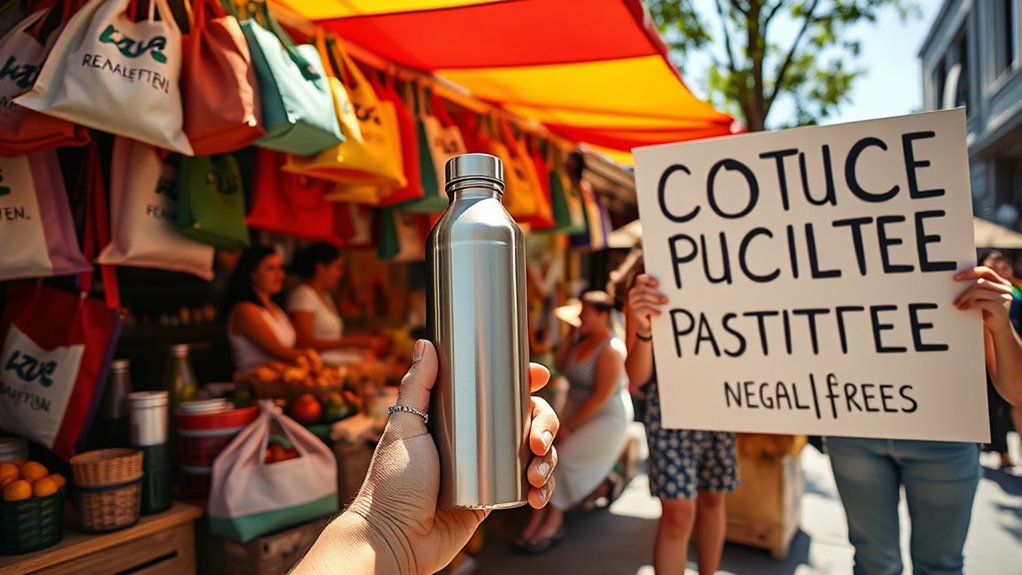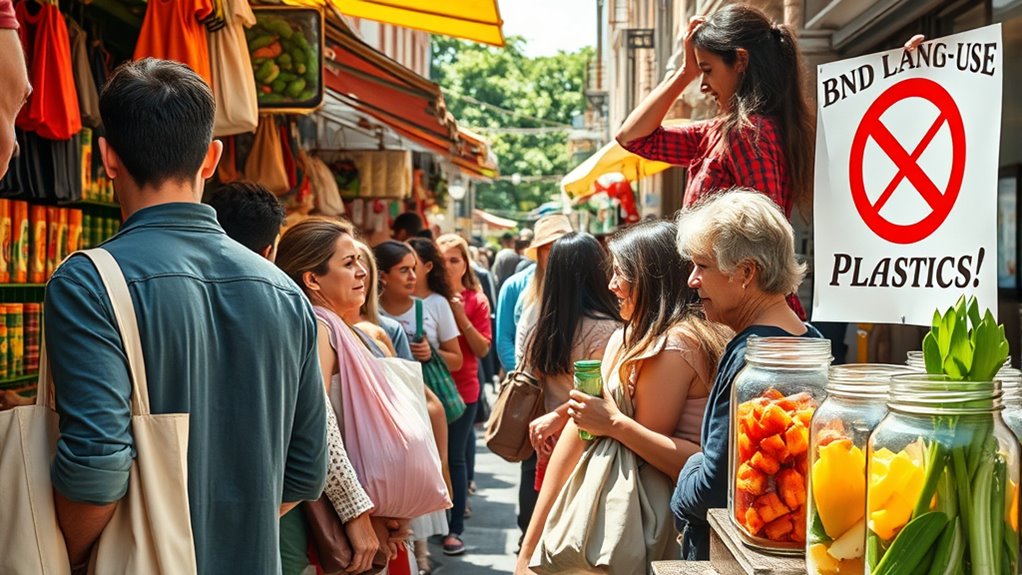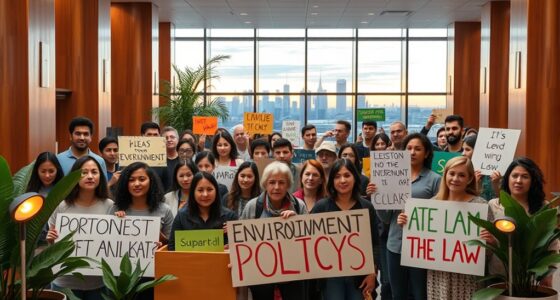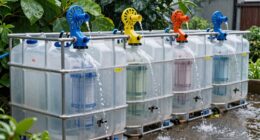The latest single-use plastics ban aims to cut down plastic waste and protect our environment. It encourages you to switch to reusable bags, bottles, and containers, reducing harmful debris in ecosystems. Recycling efforts and consumer awareness play key roles in this shift. Embracing these changes means adopting more sustainable habits and supporting policies that promote eco-friendly choices. Stick around, and you’ll learn how this ban can make a real difference in building a cleaner, healthier future.
Key Takeaways
- The latest ban targets single-use plastics to reduce environmental pollution and encourage sustainable consumption.
- It includes restrictions on items like plastic bags, straws, and cutlery, promoting eco-friendly alternatives.
- Recycling initiatives are reinforced to ensure proper disposal and minimize plastic waste.
- Public awareness campaigns aim to change consumer behavior towards reusable and responsible choices.
- The ban reflects a societal shift towards sustainability, supporting policies and community efforts to protect ecosystems.

Many cities around the world are taking action to reduce plastic waste by banning single-use plastics. This shift aims to tackle pollution, protect ecosystems, and promote sustainable habits. When these bans are implemented, they often go hand-in-hand with recycling initiatives designed to encourage responsible disposal and reuse of plastics. As a consumer, you play an essential role in this transition. Your awareness of the environmental impact of single-use plastics can motivate you to embrace alternatives and support policies that reduce plastic pollution.
Recycling initiatives are an indispensable component of these bans. They are structured to make it easier for you to dispose of plastics responsibly, ensuring that materials are properly sorted and processed. These programs often come with improved facilities, clear guidelines, and incentives that motivate you to participate actively. For instance, many cities now provide separate bins for recyclable plastics, making it simple to do your part. Recycling not only reduces the amount of waste sent to landfills but also conserves resources and energy, reinforcing the importance of reducing single-use plastics altogether. Incorporating keto-friendly ingredients into your lifestyle can also be part of a broader effort to choose sustainable and health-conscious options.
Recycling programs simplify plastic disposal, promote responsible sorting, and help conserve resources and energy.
Consumer awareness is equally essential. When you understand the environmental consequences of using disposable plastics, you’re more likely to change your habits. Educational campaigns, public outreach, and transparent communication from authorities help inform you about the benefits of reducing plastic consumption. You might start carrying reusable bags, bottles, or containers, and choose products with minimal or eco-friendly packaging. As a conscious consumer, your choices influence businesses to adopt more sustainable practices, such as offering biodegradable alternatives or reducing packaging altogether.
The bans also aim to shift societal norms, making it more socially acceptable—and expected—to avoid single-use plastics. This cultural change is driven by your collective awareness and support for policies that prioritize sustainability. You can participate in community clean-up events, advocate for further regulations, or educate others about the importance of reducing plastic waste. These actions create a ripple effect, empowering others to make eco-friendly choices and strengthening the overall effort to phase out single-use plastics.
Frequently Asked Questions
How Will the Ban Impact Small Businesses and Local Vendors?
You’ll need to adapt economically by finding sustainable alternatives, which might involve some upfront costs. However, this ban encourages community engagement, allowing you to showcase your commitment to environmental responsibility. As a small business or local vendor, you can leverage this change to attract eco-conscious customers, strengthening your local presence. Embracing these adjustments not only helps you stay compliant but also promotes a positive reputation in your community.
Are There Any Exceptions to the Plastic Ban for Certain Products?
You might wonder if there are plastic exemptions or product exceptions to the new ban. Generally, some plastic exemptions apply, such as for medical supplies, certain industrial uses, or specific packaging that can’t be easily replaced. However, these product exceptions are limited, so it’s essential to check local regulations to see if your products qualify. Staying informed helps you adapt your business practices and avoid penalties.
What Alternatives Are Recommended to Replace Single-Use Plastics?
You might worry that finding replacements is tough, but biodegradable packaging offers a great alternative that breaks down naturally. Reusable alternatives, like cloth bags and metal straws, are eco-friendly options that cut down waste. Switching to these not only helps the environment but also saves you money in the long run. So, embrace these sustainable choices and make a meaningful impact with simple, effective replacements for single-use plastics.
How Will Enforcement and Compliance Be Monitored Effectively?
You should focus on effective enforcement strategies and compliance monitoring to guarantee the ban works. Regular inspections, clear penalties, and public reporting can keep businesses accountable. Utilizing technology like surveillance and data tracking helps monitor compliance efficiently. Educating stakeholders about regulations also encourages voluntary adherence. By combining these methods, you can create a robust system that discourages violations and promotes consistent enforcement across all areas impacted by the ban.
What Penalties Exist for Violating the New Plastic Ban?
When it comes to penalty enforcement and violation consequences, you need to know the stakes. The law imposes fines that can add up quickly if you violate the new plastic ban. Authorities are serious about enforcement, so penalties are clearly outlined to deter violations. If you’re caught, expect consequences like hefty fines or even legal action. Play it safe—adhering to regulations keeps you out of hot water and helps protect the environment.
Conclusion
As you say goodbye to single-use plastics, remember that this ban isn’t just about reducing waste—it’s about reclaiming your responsibility for the planet’s future. While convenience tempts you, choosing reusable options empowers you to create lasting change. The tiny act of refusing a plastic bag might seem insignificant, but it’s a powerful step toward a sustainable world. Embrace this shift; your small actions can make a big difference in shaping tomorrow.








